
The tradition of apothecaries and hakims, sellers of salves and spices, tinctures and medicinal herbs, is still wide spread in the by-lanes of the Muttrah souk in Muscat, the capital of Oman. Entering this bazaar, with its maze of alleyways, its age-old charm and its untold secrets of curative herbs, potions and balms, is an experience in itself!
Madhu Nanda lived in Oman for over twenty years and her recollections of her visits to the hakims is both intriguing and inspiring. A hakim is a wise man or a physician, a practitioner of herbal medicine. On the threshold of the Souk, she discovered an Internet and a fast-food café and, of course, the inimitable, flourishing tea shop still thriving. The tin chairs and tables were gone, replicated with a marble bench and a new bamboo roof covered the alluring sea and sky. Of course the habitués still sipped their kahwa (coffee) slowly with a ‘not a care and all the time in the world’ stance which made us wonder why we were always multitasking at a furious pace.
Over the strong and sweet tea, Madhu looked around and spied a hakim just opposite the tea shop. A host of veiled women crowded the microscopic entrance to his apothecary. No sooner had he written one prescription, he was besieged by the next wave of grandmothers, wives, sisters and daughters-in-law. His apprentice declared that he had not had a cup of tea since the morning, because he was constantly inundated with patients. It was obvious, Madhu said, there would be no time to impart the arcane knowledge of herbs, spices and unguents, not to mention the drawbacks of communicating and understanding the benefits each item used in the treatment provided. The people had enormous faith in the Hakim and his diagnosis; psychologically they felt fifty percent better already!
One patient lady had been waiting all morning; she reiterated that she always used herbal remedies, western medicine was expensive and the herbal mixtures were as good, if not better. Silver khanjars (daggers), Nizwa pottery ittars (scents), braids and bric-a-brac were all available and behind the display an ancient seller of ancient unguents. He spoke fluent Urdu with a turn of phrase that was naturally poetic. He had always been there. “I was born in 1938 and I opened my eyes and saw the souk. The sea lapped the sills of my shop and one day when the rain was torrential, the sea took away our entire stock. God giveth and God taketh away, but if you are good and pure, He always gives it back.” Behind him rose shelves jammed full of crystals, powders, seeds, stems and roots with resonating names from India, Iran and Arabistan. He discussed the virtues of frankincense which was burnt at sunrise. The sacred aroma deepens breathing which results in calmness. This could explain how using it as an incense creates a state conducive to prayer. All over the Khaleej, in Iran, Iraq, Jordan and Lebanon, women could be seen chewing frankincense the way Indian women chew supari (betel nut) or American women chew gum. They had worked out the knack of not allowing it to stick to their teeth. It was good exercise and sweetened the breath. Inhaling it clearers the lungs and smoke from burning frankincense purifies the air.
Word went around the Souk of Madhu’s visit and in no time at all a shoemaker appeared, proffering more names such as ‘gajjarpuna’ from U.P. in India which was said to be good for alleviating dizziness. A salesman offering Kunduras and Kumasi, the Omani gown and headdress, came in and teased the shoemaker for his undetermined claims.
Madhu continued her search for a learned and experienced Hakim until she found Ahmed Ali al Abri. He was a soft-spoken Omani with a passion for herbal medicine. He said a lot of Omanis believed in herbal medicine and he felt they would go back to the old ways. He said over 30,000 people had visited him and there were no complaints. He spends three days a week in Muscat and three days in Salalah seeing almost 70 patients a day.
His father, who was well known in Oman, started teaching him when he was 9 years old. He is still learning from books, research on the Internet and a dialogue with doctors the world over, especially Indian, Chinese and Australian herbalists. To exchange ideas with African herbalists, Ahmed Ali has travelled to Tanzania umpteen times. Tropical forests are rich in medicinal plants and the healing power of a tree in a rain forest is far greater than that of one grown with chemical fertilisers, Ahmed said. Before Ahmed makes or mixes his medicines, he says, “I make sure they are natural, I buy leaves not powder”.
Ahmed Ali regretted the rising incidents of diabetes among children and advised “chocolates and fried food should be avoided. They should eat fresh fruit and get plenty of exercise to burn off the toxins”. Ahmed remarked in an interview with CNN several years ago that when his children got sick, he took them to the hospital but after the diagnosis he treated them with herbs.“I enjoy what I do, I like to practice and teach. My father gave it to me free so I will also teach free of charge”, he added, smiling.
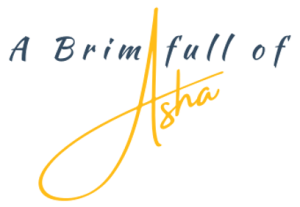
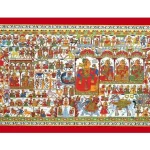
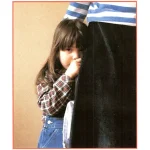
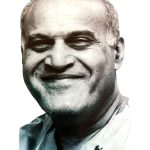
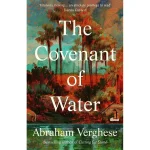
From Kusum Saxena:
🕉️Hello Asha,
Read your post of the 8th July and felt *very happy* doing so!
I didn’t know about this noble Hakim and his therapeutic treatment. So, it was indeed very refreshing to learn something new.
Thanks!
Thanks for bringing to light the hidden treasures of Muttrah souq! I don’t think many people are aware of the knowledgeable hakims.